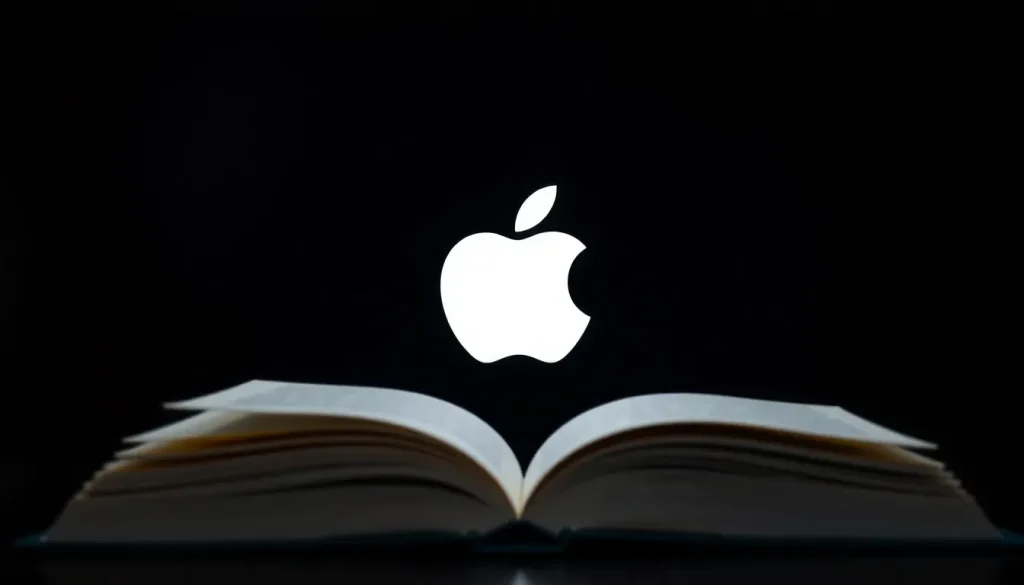Apple faces lawsuit for using books to train Apple Intelligence

Apple has recently come under fire for allegedly using copyrighted works to train its artificial intelligence model, Apple Intelligence. This lawsuit, filed in a federal court in California, comes from a group of neuroscientists who claim that Apple included their books without permission in the datasets used for the model's training.
According to the lawsuit, Apple reportedly accessed "shadow libraries," effectively sailing the seas of the internet like a pirate ship, collecting protected works. The aim was clear: to expand its dataset and compete with rivals like OpenAI and Anthropic. As expected, the authors are seeking financial compensation and demanding that Apple remove all traces of their works from the language model, in addition to wanting to prohibit any future unauthorized uses of their creations.
Allegations Against Apple Intelligence and the Broader Implications
Apple Intelligence is not the first—and certainly won't be the last—company accused of accessing copyrighted content through means like BitTorrent. This situation places Apple alongside a select group of tech giants, including Google, OpenAI, Meta, and Microsoft, all of whom have been formally accused of relying on protected material in training their AI systems.
This wave of lawsuits is opening legal fronts that could shape the future of how AI models are trained for commercial use. Currently, Apple has not publicly addressed the allegations, and it remains to be seen how this will unfold. The court must first determine if the use of protected texts can be considered "fair use" in the context of machine learning. If the California federal court finds that there is no "transformative use," Apple may be forced to retrain its models or pay retroactive licensing fees for the content.
If a ruling goes against Apple, it could strengthen existing lawsuits against other tech giants, potentially accelerating the creation of databases with verified licenses. This could limit access to protected content, raising significant questions about the future of AI data sourcing. Apple might mount a logical defense by arguing that the data was obtained from public sources or intermediaries, attempting to shift the responsibility away from itself.
Comparative Cases of Copyright Infringement in AI
The most notable case to date remains that of Meta, which made headlines earlier this year for allegedly downloading almost 82 TB of books through BitTorrent. This extensive collection of data was used to train its AI model, LLaMA. In comparison, Apple's lawsuit appears relatively minor.
Despite the massive amount of data downloaded, the plaintiffs were unable to convince the court of the negative impact on sales or licensing of the downloaded books. In its defense, Meta claimed that while the material was pirated, it did not contribute to its distribution. Ultimately, Meta won this particular case due to technical reasons, which suggests that Apple’s lawsuit may face similar challenges if it follows a comparable legal strategy.
The Growing Concern Over AI Training Practices
The debate surrounding AI training practices is increasingly relevant given the rapid advancements in artificial intelligence. As companies seek to enhance their models, the question of sourcing training data becomes critical. The implications of these legal battles extend beyond individual companies; they could set precedents for how AI can legally utilize copyrighted material.
- Fair Use Doctrine: The legal concept of “fair use” could be redefined, impacting not only tech companies but also content creators.
- Licensing Requirements: Stricter regulations might emerge, necessitating that AI companies obtain licenses for any copyrighted material used in training.
- Innovation in AI: These legal challenges could stifle innovation if companies become overly cautious about the data they use.
- Transparency: Increased demand for transparency in how AI models are trained might lead to new standards in the industry.
What Could This Mean for the Future of AI?
As the legal landscape evolves, several potential outcomes could affect the future of artificial intelligence:
- Revised Legal Standards: Courts may establish new legal standards that clarify the boundaries of copyright in the context of AI training.
- Increased Compliance Costs: Companies might incur additional costs associated with obtaining licenses and ensuring compliance with new regulations.
- Innovation Bottleneck: A chilling effect may ensue, where companies hesitate to develop new models due to fear of litigation.
These developments are significant not just for the companies involved but for the entire industry. They highlight the need for ongoing dialogues about the ethical implications of AI technology and the rights of content creators. For a deeper dive into the implications of such cases, you can watch this informative video:
Conclusion
The unfolding legal battles over AI training practices signal a pivotal moment in the tech industry. As companies like Apple navigate these waters, the outcomes could reshape the way AI models are developed and the data they are trained on. The balance between innovation and copyright protection will be crucial as we move forward.




Leave a Reply